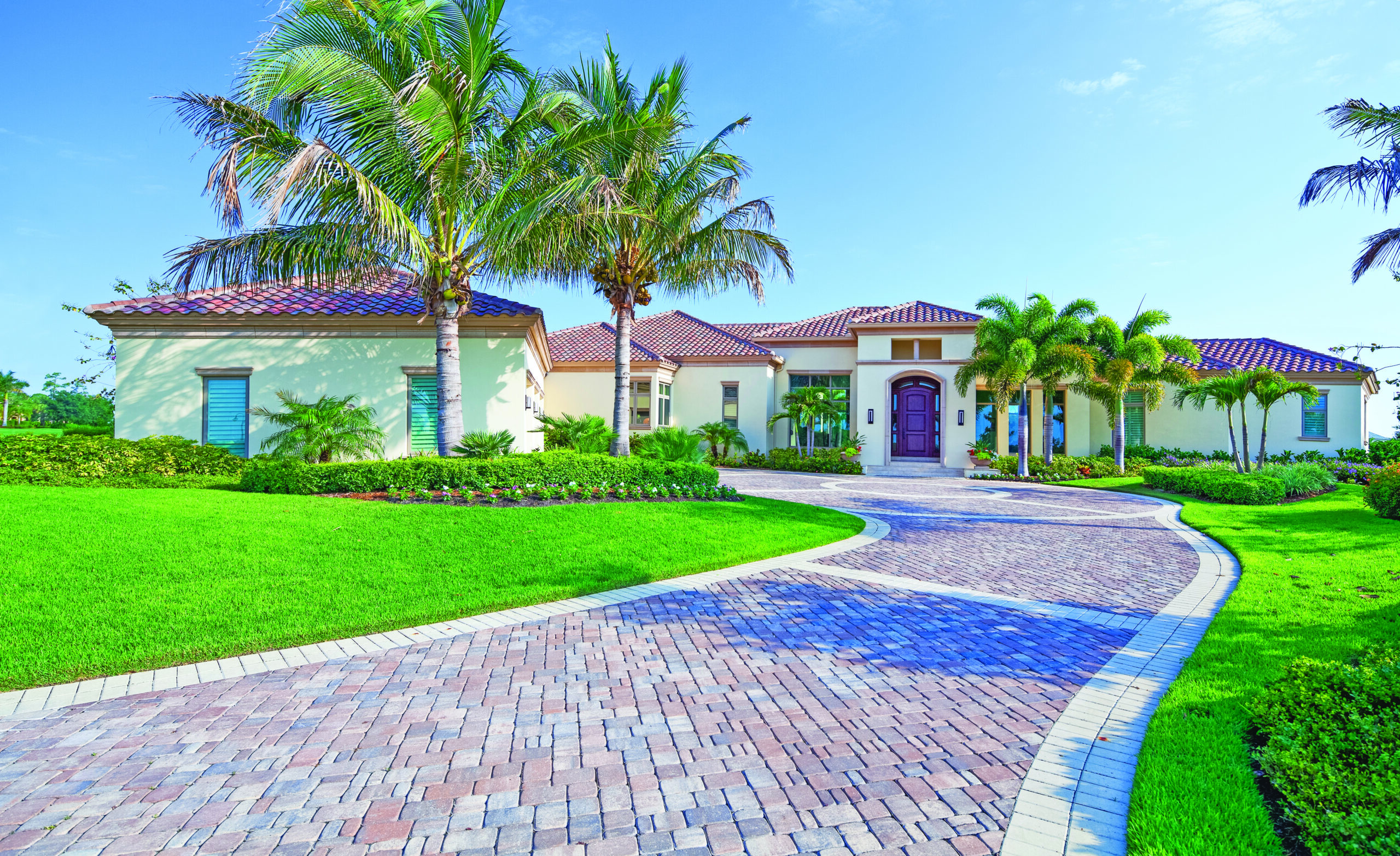Selecting the right driveway material for your home involves weighing multiple factors including durability, maintenance requirements, aesthetic appeal, and cost. Homeowners typically choose between four main options: concrete, asphalt, pavers, and gravel, each with its own set of advantages and disadvantages. This comprehensive driveway materials comparison will examine the key characteristics of each option to help you make an informed decision that complements your home’s style and meets your practical needs. Understanding these differences is crucial since your driveway is both a functional necessity and a significant contributor to your property’s curb appeal.
Concrete Driveways
Concrete remains one of the most popular driveway materials due to its exceptional durability and relatively low maintenance requirements. A properly installed concrete driveway can last 30-40 years, making it a long-term investment for homeowners. Beyond its longevity, concrete offers versatility in design through various finishing techniques including stamping, staining, and exposed aggregate that can elevate your home’s exterior appearance.
The concrete vs asphalt driveway debate often centers on longevity and climate suitability. Concrete performs exceptionally well in warm climates but may crack in regions with frequent freeze-thaw cycles unless properly installed with expansion joints. Maintenance typically involves sealing every few years and promptly addressing any cracks to prevent them from expanding.
Cost-wise, concrete represents a middle-to-high investment, with national averages ranging from $4-$8 per square foot for standard finishes, while decorative options can increase costs significantly. Despite the higher upfront investment compared to some alternatives, many homeowners find the durability and aesthetic versatility worth the additional expense.
Asphalt Driveways
Asphalt provides a cost-effective alternative that performs particularly well in cold climates. Its slightly flexible nature helps it withstand freeze-thaw cycles better than concrete, though it softens during extreme heat. With proper maintenance, an asphalt driveway typically lasts 15-20 years, offering a shorter but still respectable lifespan.
In the concrete vs asphalt driveway conversation, asphalt has a distinct advantage in installation speed and initial cost. Most asphalt driveways can be installed in 1-2 days and cost between $2-$5 per square foot. However, asphalt requires more regular maintenance than concrete, including sealcoating every 3-5 years to prevent deterioration from UV rays and water damage.
The aesthetic options for asphalt are more limited than concrete or pavers, typically restricted to a standard black finish that weathers to dark gray over time. Some specialty mixes and border treatments can enhance the appearance, but asphalt generally appeals to homeowners prioritizing function and value over decorative possibilities.
Paver Driveways
Paver driveways represent the premium option for homeowners seeking maximum aesthetic appeal and design flexibility. Available in countless shapes, sizes, colors, and patterns, concrete or brick pavers create distinctive driveways that significantly enhance property value and curb appeal. Their segmented nature allows for easy repairs, as individual damaged pavers can be replaced without disturbing the entire surface.
The paver driveway cost typically ranges from $10-$30 per square foot, depending on material quality, complexity of design, and local labor rates. While this makes pavers the most expensive option initially, their exceptional durability (often 30+ years) and ability to increase property values can offset this investment. According to AskHomey, homes with well-designed paver driveways often recoup a significant portion of their installation costs through increased property valuation.
Maintenance for paver driveways includes occasional re-sanding of joints and ensuring proper drainage, but the segmented design naturally accommodates ground movement without cracking. This adaptability makes pavers suitable for virtually all climate conditions, providing both practical performance and aesthetic appeal.
Gravel Driveways
Gravel represents the most economical driveway option, with installation costs typically ranging from $1-$3 per square foot. This cost-effectiveness makes gravel particularly appealing for properties with long driveways where other materials would become prohibitively expensive. The gravel driveway pros cons discussion often highlights its immediate affordability and rustic charm.
Among the significant advantages of gravel are its excellent drainage properties and suitability for DIY installation. However, maintenance requirements represent the primary drawback. Gravel driveways require regular regrading to address ruts and displaced stones, particularly after heavy rainfall or snow removal. Additionally, gravel may migrate onto lawns or walkways, necessitating periodic replenishment every 2-5 years.
Environmental considerations also factor into the gravel driveway pros cons equation. Gravel creates a permeable surface that allows water to return to the ground rather than contributing to runoff, making it an environmentally friendly option compared to solid surfaces like concrete or asphalt.
Choosing the Right Material for Your Home
The ideal driveway material varies based on your specific circumstances, including climate, budget, aesthetic preferences, and willingness to perform maintenance. In cold climates with frequent freeze-thaw cycles, asphalt often provides the best performance, while concrete excels in warmer regions. Homeowners with flexible budgets seeking maximum curb appeal might prefer pavers, while those with rural properties or extensive driveways often find gravel the most practical solution.
Consider both immediate costs and long-term value when making your decision. While concrete and pavers require higher initial investments, their extended lifespans and minimal maintenance requirements often result in lower lifetime costs compared to less expensive alternatives requiring frequent attention.
For more tips and to connect with reliable home service professionals, follow AskHomey on Facebook and Instagram.



